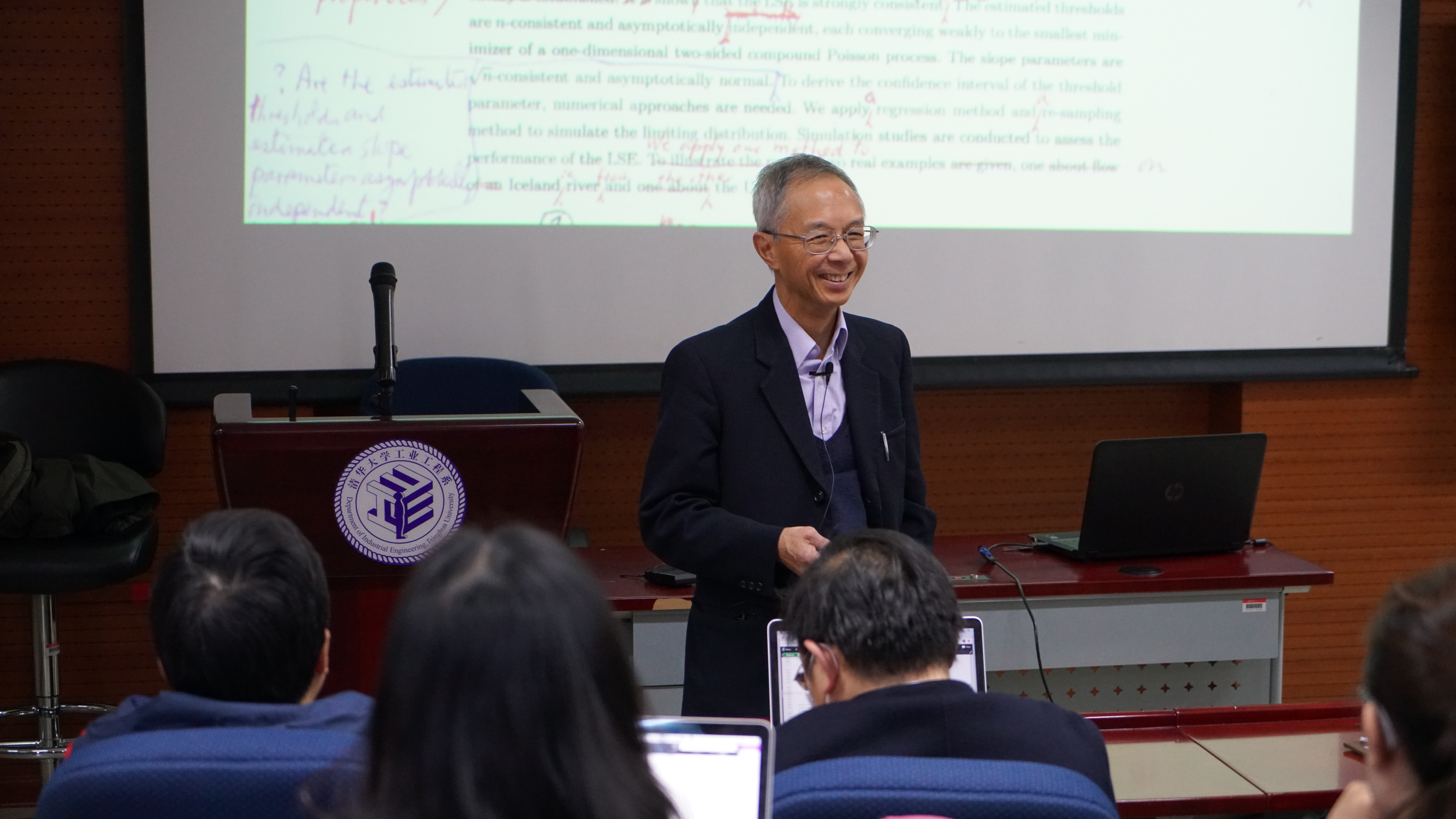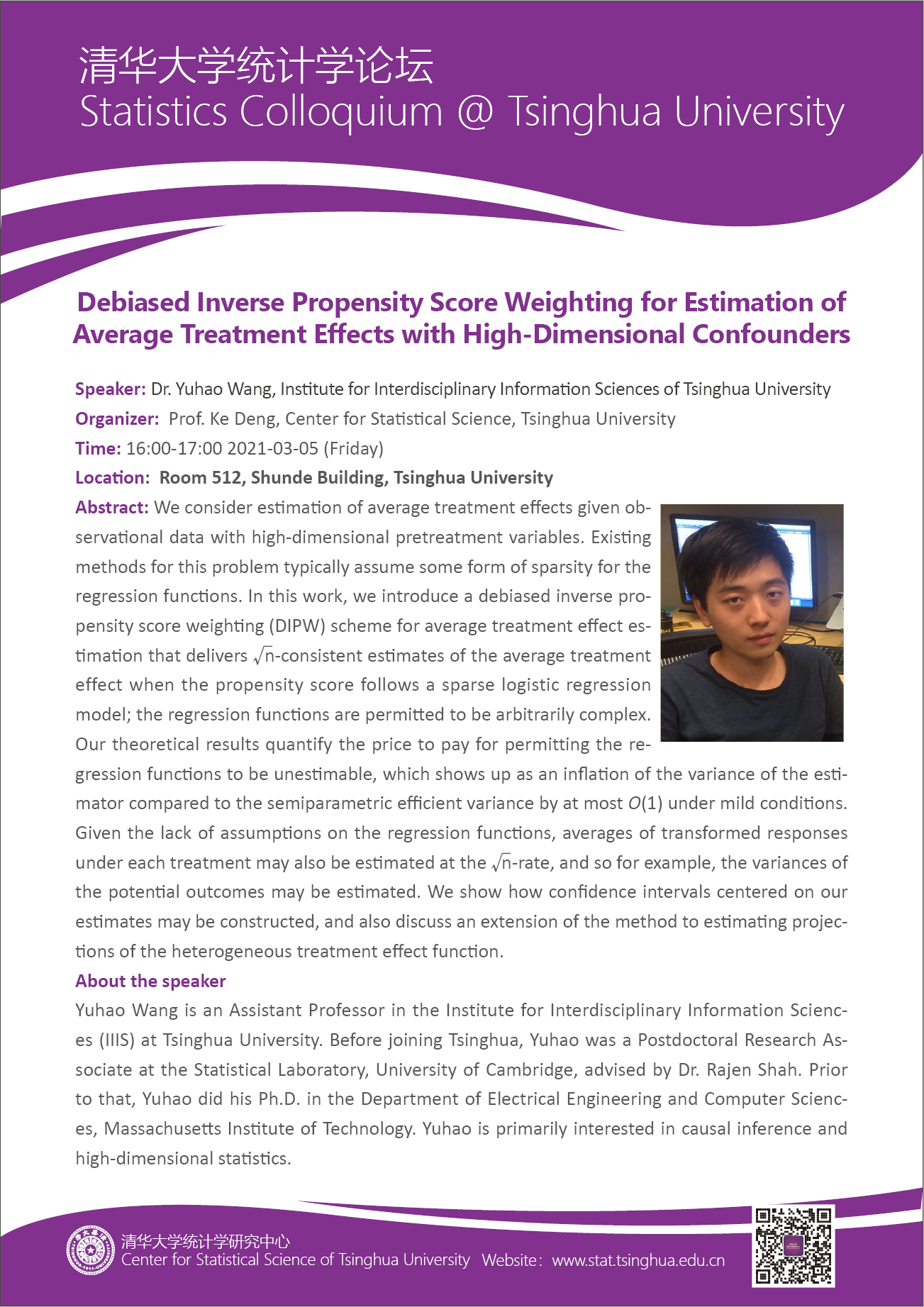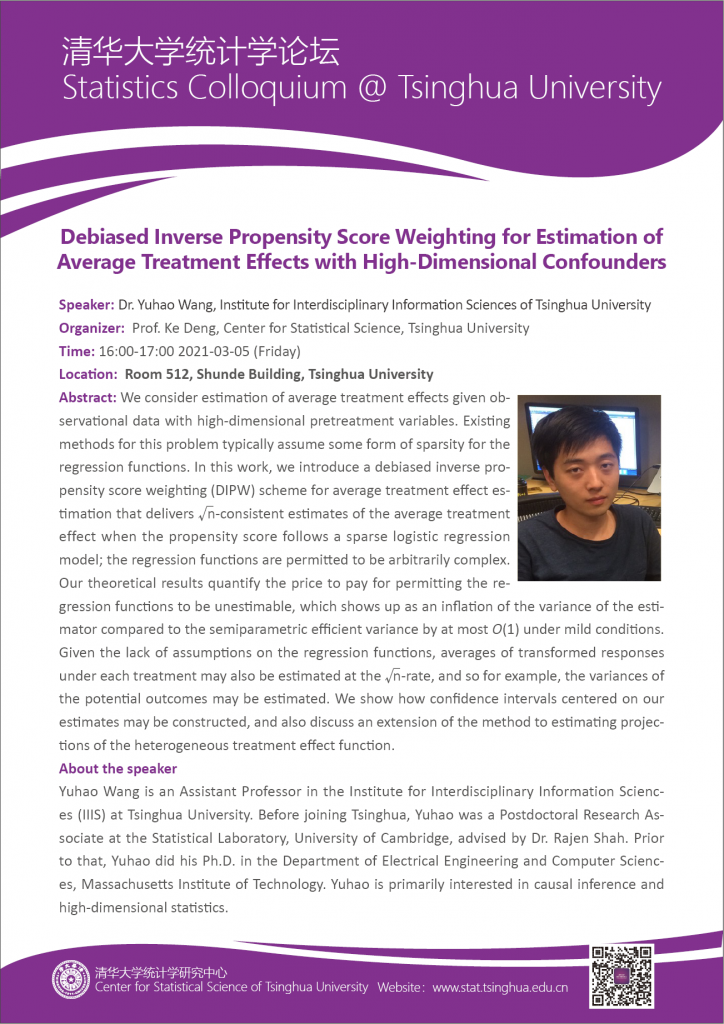Talking with Great Minds—Howell Tong
Keywords: International view Broad-minded Practical need Leadership

- Childhood and study experience oversea.
Q: Can you talk about your childhood?
A: In my childhood, my family and I were faced with general tough life conditions, but eventually we went through the hardship and became stronger. I am also very lucky that I always have good teachers. One of the teachers that I remember particularly once told us a story about Hua Luogeng when I was very young. That was the time Hua Luogeng returned to China. My teacher told me how he became famous after studying, and that actually made a quite impression on me. I think it’s because of his story that I decided to study Mathematics. I moved to England in 1961 when my father worked there. The secondary school I attended was not a top school, but was very comprehensive. Under the support of the school and headmaster, I picked up English quickly. I was the only boy from that school who went to a university.
Q: In that period, did you encounter any challenge in your study or life?
A: Yes. First of all, I need to get used to the English way of schooling, for example moving across different classrooms to have lessons, and different dietary habit on campus. But luckily the students around were all very nice, and we became good friends. Because of this experience, I was able to know different culture and their way of speaking. It’s quite a big challenge to adapt from the Hong Kong school system to a working class environment in London at that time.
Q: Is there any particular reason that you choose Statistics as your major?
A: Well as I said I decided to study Mathematics, and I graduated in Mathematics in Manchester. We had good statistics teachers and received many statistics courses, which was unusual at that time in England. I also got a chance to listen to a lecture about probability theory given by an eminent probability researcher. I was impressed by his lecture and became interested in probability theory. Because of my family, I decided to suspend the post-graduate study and took a job. During that time, I started to read some papers, and I came across one paper about time series by my former teacher in Manchester. That’s how I became interested in time series. I wrote to him and went back to Manchester. Due to some reasons, I accidentally became a university teacher teaching statistics instead of a post-graduate student. I was very lucky.
- Early career as a statistician.
Q: How did you finally decide to become a statistics researcher?
A: Once I returned to Manchester, I became quite clear that statistics is the career I want to pursue. Thanks to my school, I had an opportunity to meet with other scientists and technologists, and became interested in control engineering and stochastic control. So, time series became quite a natural subject for me. My early career was mainly oriented in frequency domain, and I changed to time domain later on when I met Akaike. He visited us in Manchester for half a year, working on multivariate control system using multivariate linear AR model, as well as some aspect of AIC(Akaike Information Criterion). We became very good friends, and I wanted to learn more from him, so I applied a Royal Society Japan Fellowship, and went to japan for 6 months. During that visit, I read a number of papers he collected, and learned a lot from not only the papers, but also the marks and personal notes he made. It was very valuable for me. By talking to him, I learned the background of why he did certain research. He did research not in front of the desk, but went out and met other scientists. He did not publish many papers in the first ten years of his career, but did a lot of great works later. He spent time cultivating friendship with engineers and other people. Because of this, he was asked to solve a problem of selecting a suitable model from a number of models in the field of predicting. That’s the original problem behind AIC. So, I got a deep understanding of the whole idea of his research besides reading papers.
Q: We know that you published many great papers in your early career, so what’s your secret for this fantastic achievements?
A: I remember the words of Mr. Yang Zhenning. He said do something that you are really passionate about. My father never interfered in my study, and I never interfered in my children’s career either. Let the person choose what he or she is really interested in. My mentor is a time series analyst, but he never pushed me, so I had the chance to choose my own area. The reason why I choose statistics is because I want to produce something new, so I am lucky to be in the right environment where there is no pressure. I am also very lucky to have a good wife taking care of my family, and lucky to have the chance meeting with other scientists. I am a good learner, and I am able to pick up the things I want to learn. I think passion is very important rather than any secret. Remember to be observant and passionate.
- About the threshold model
Q: Now let’s talk about one of your most important work in non-linear time series, the threshold model. Where did the idea come from?
A: When I was visiting Akaike, I learned the way he produced the spectral density estimate. So, I used the approach on the lynx data, which I was very interested in. There was a session in the Royal Statistic Society and I presented this paper. During that discussion, there was one gentleman who made a very, very important comment. He said that the data is cyclical, but the cycle is not symmetric. The lynx population would rise slowly but fall rapidly. If you use a linear Gaussian model, you would never be able to capture it. Also, he said that from the point view of dynamical system, the cycle should be considered limit cycle. So, if you can produce a model that leads to limit cycle, it would be ideal. And David Cox and Akaike also made some similar comments. However, it is very difficult and is a big challenge.So, I decided to work on the problem. But my entire education up to that time was all in linear. So, I need to teach myself nonlinear dynamical systems.
Then, one day I was in my garden and mowing the lawn. When you mow the lawn, you go strip by strip. Suddenly, the idea of piecewise linearity came into my mind. This is because I was subconsciously thinking of the problem all the time.
Then I started working on the idea and a student did programs. One day she brought me some results which were too perfectly periodic to be possible. Then I found that she forgot the noise. This was the first time I saw limit cycle. Then, I said we could also see whether this model can produce other nonlinear phenomena, such as subharmonics, higher harmonics, amplitude-frequency dependency and so on. And it turned out that the model could do that.
Q: Did you encounter difficult times with the model?
A: Yes. A lot of people discussed the paper but I could not say everybody liked it, maybe because the idea was so new. I also got one or two people attacking. The model was invented in 1980s but has remained fairly quiet for 10 years. It was in about the 1990s that the model attracted a lot of attention. So, the beginning was not easy.
Q: From your experience, how to find a good research problem?
A: First of all, you have to be social. To me, statisticians are toolmakers. What tool you want to invent must be dictated by practical needs from people on the ground. So, we should go out, interact and collaborate with other scientists. We should be members of scientific teams. Don’t follow fashion blindly. I never want to follow fashion. When I did nonlinear time series, almost none of the leaders in time series worked on that.
There are probably two types of research. One is the run-of-mill research, which means you have an incremental improvement. Those things do not take us long and you can publish these very quickly. The other one is the revolutionary research. Of course, in one’s lifetime, one would probably not have more than a couple of such revolutions. But you must always keep them in mind, work on them in any spare time.
- About the leadership
Q: You have been Chair of Statistics at several universities. How can you do good jobs in both academic and management? What’s your secret?
A: I adopted the principle I learned from Lao Tzu (老子) and Sun Tzu’s “Art of War” (孙子兵法). I cannot micromanage, so if there is any big job I will identify a suitable person. Then I will give the person my full support. So if you use one person you need to trust him (用人不疑,疑人不用).
- About statistics in the future
Q: Do you worry about the future of statistics given the competition from Machine Learning and AI?
A: As Lao Tzu has said, behind every good fortune there is a misfortune, and misfortune leads to good fortune (祸兮福之所倚,福兮祸之所伏). I think the two aspects are certainly true for what challenge statistics is facing in the domain of data science. But if we sensibly steer our ship of statistics, we can benefit. Machine learning is certainly a powerful tool, but some of the ideas are not unknown or uncommon in statistics. Because in statistics, the basic training is how to handle randomness, and for anything that requires that, statistics has advantages. But on the other hand, we have to be fully prepared and liberate our minds. Some of the old ideas may be too restrictive. We used to deal with small data set in days of Fisher, but now we have to deal with large data sets. To defeat the new challenge, we have to adopt the attitude in Chinese culture: when foreigners come, we absorb them.
So, I don’t worry. As long as we are broad-minded and ready to adapt, we can survive and grow.



